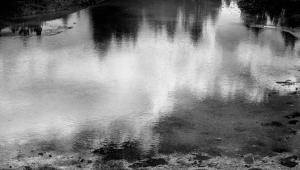Protecting Your Rights
![]()
Protecting Your Rights
By Ron Leach, Publisher
The U.S. Copyright Office recently issued a call for comment on "orphan
works"--asking a number of questions about what to do with works
that are still technically under copyright protection but where the rightful
owner cannot be located. In response, four leading photography organizations
submitted a detailed joint analysis of this important issue.
The four industry groups were Professional Photographers of America, Commercial
Photographers International, the International Association of Professional Event
Photographers, and the Student Photographic Society. Together with their affiliates
and chapters, they represent some 28,000 professional photographers and photography
students. Their letter to the U.S. Copyright Office, dated March 25, expressed
agreement with the notion of creating an accommodation for those wishing to
use works that are truly "orphaned," but it cautioned that any exception
for this purpose must be narrowly drawn and should make it easy for photographers
to enforce their rights.
The photography organizations noted that their primary concern is ensuring that
any orphan works exemption does not open the door to "even more rampant
infringement of photographic copyrights." They expressed a secondary caution
regarding the possibility than an orphan works exemption would result in the
"inadvertent and unfair loss of copyright protection for many artists"--citing
commercial and media photographers who often have little control of how their
works are presented to the public.
In their 13-page letter, the industry groups also suggested that any orphan
works provision require a reasonable search for the rightful copyright owner,
require the copier or user to maintain records of that search, and--if
that search is successful--only allow a limited range of reproductions
or uses. The groups further recommended that any orphan works claims be submitted
to a forum other than the federal district court--suggesting a "Court
of Small Copyright Claims--to avoid the substantial costs involved with
district court litigation.
We will keep you posted on further developments in this area, as they are forthcoming.
- Log in or register to post comments












































